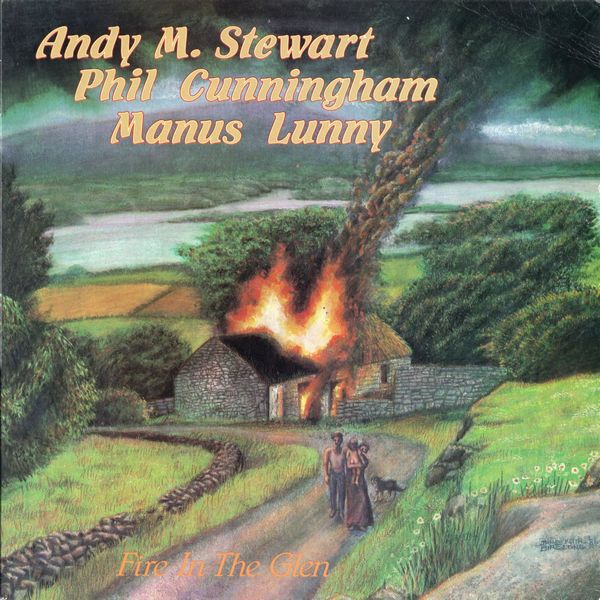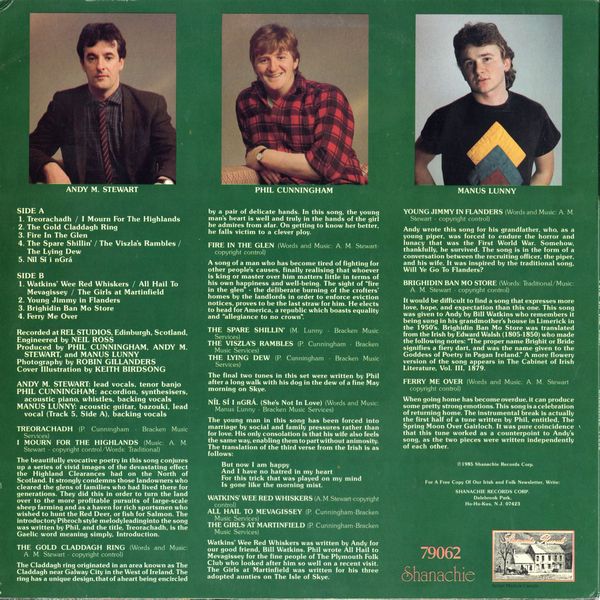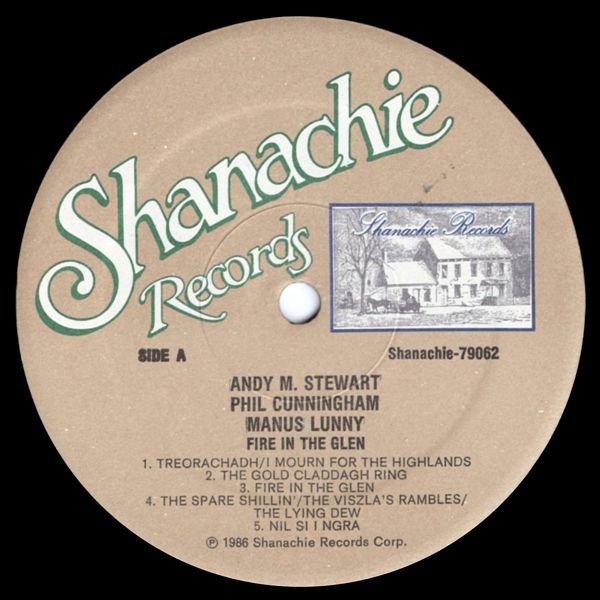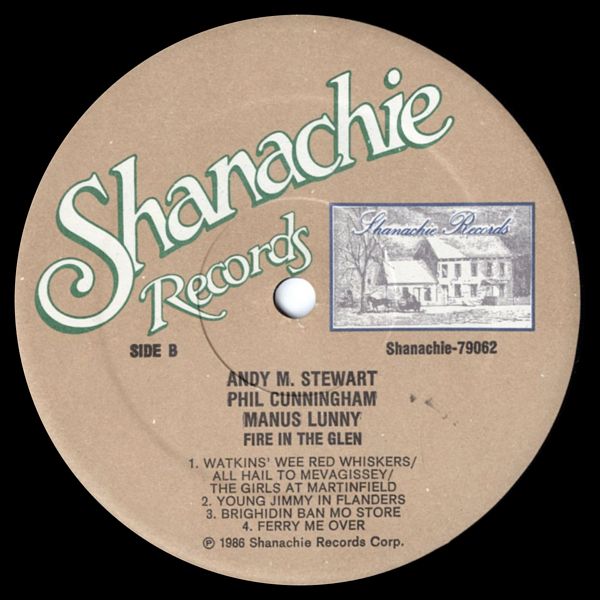
 |


 |
Sleeve Notes
Treorachadh & I Mourn For The Highlands — The beautifully evocative poetry in this song conjures up a series of vivid images of the devastating effect the Highland Clearances had on the North of Scotland. It strongly condemns those landowners who cleared the glens of families who had lived there for generations. They did this in order to turn the land over to the more profitable pursuits of large-scale sheep farming and as a haven for rich sportsmen who wished to hunt the Red Deer, or fish for Salmon. The introductory Pibroch style melodyleadinginto the song was written by Phil, and the title, Treorachadh, is the Gaelic word meaning simply, Introduction.
The Gold Claddagh Ring — The Claddagh ring originated in an area known as The Claddagh near Galway City in the West of Ireland. The ring has a unique design,that of aheart being encircled by a pair of delicate hands. In this song, the young man's heart is well and truly in the hands of the girl he admires from afar. On getting to know her better. he falls victim to a clever ploy.
Fire In The Glen — A song of a man who has become tired of fighting for other people's causes, finally realising that whoever is king or master over him matters little in terms of his own happiness and well-being. The sight of "fire in the glen" - the deliberate burning of the crofters' homes by the landlords in order to enforce eviction notices, proves to be the last straw for him. He elects to head for America, a republic which boasts equality and "allegiance to no crown".
The Spare Shillin, The Viszla's Rambles & The Lying Dew — The final two tunes in this set were written by Phil after a long walk with his dog in the dew of a fine Nay morning on Skye.
Níl Sí i nGrá (She's Not In Love) — The young man in this song has been forced into marriage by social and family pressures rather than for love. His only consolation is that his wife also feds the same way, enabling them to part without animosity. The translation of the third verse from the Irish is as follows:
But now I am happy
And I have no hatred in my heart
For this trick that was played on my mind
Is gone like the morning mist.
Watkins' Wee Red Whiskers, All Hail To Mevagissey & The Girls At Martinfield — Watkins' Wee Red Whiskers was written by Andy far our good friend, Bill Watkins. Phil wrote All Hail to Mevagissey for the fine people of The Plymouth Folk Club who looked after him so well on a recent visit. The Girls at Martinfield was written for his ihiee adopted aunties on The Isle of Skye.
Young Jimmy In Flanders — Andy wrote this song for his grandfather, who, as a young piper, was forced to endure the horror and lunacy that was the First World War. Somehow, thankfully, he survived. The song is in the form of a conversation between the recruiting officer, the piper, and his wife. It was inspired by the traditional song, Will Ye Go To Flanders?
Brighidin Ban Mo Store — It would be difficult to find a song that expresses more love, hope, and expectation than this one. This song was given to Andy by Bill Watkins who remembers it being sung in his grandmother's house in Limerick in the 1950's. Brighidin Ban Mo Store was translated from the Irish by Edward Walsh (1805-1850) who made the following notes: "The proper name Brighit or Bride signifies a fiery dart, and was the name given to the Goddess of Poetry in Pagan Ireland." A more flowery version of the song appears in The Cabinet of Irish Literature, Vol. III, 1879.
Ferry Me Over — When going home has become overdue, it can produce some pretty strong emotions. This song is a celebration of returning home. The instrumental break is actually the first half of a tune written by Phil, entitled, The Spring Moon Over Gairloch. It was pure coincidence that this tune worked as a counterpoint to Andy's song, as the two pieces were written independently of each other.